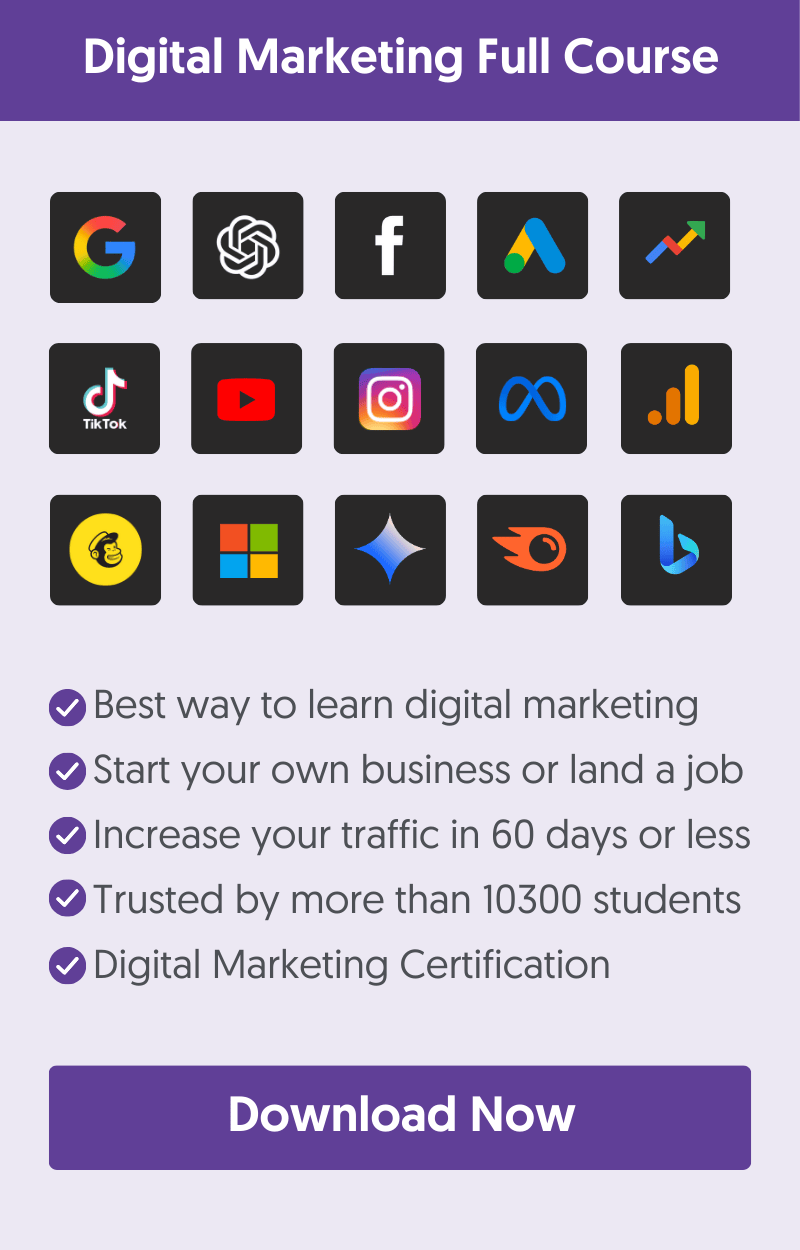SEO is not just about ranking higher in Google but also about branding, which generates numerous benefits for a business.
To understand how SEO can help you with brand awareness, let's see what brand awareness is.
Brand awareness refers to how consumers perceive a brand. Can they recognize a product or business just by its name? Can they recall the brand when thinking of a related product or service?
Brand awareness is an important marketing concept because businesses with high brand awareness get more clicks, shares, mentions, attention, and business than less well-known brands.
Why Is SEO Important For Brand Awareness?
SEO is important for brand awareness because it helps brands appear on the top of Google for related searches. This increased visibility leads to more free traffic from search engines (organic traffic), which generates more sales and conversions.
And that's only one of SEO's benefits for brands. Users trust websites that appear on the SERPs, which boosts brand credibility and influences users' perceptions of a brand, leading to more engagement.
Another reason SEO is important is authority. Websites appearing in the first positions of Google are considered by users as authoritative in their niche. User's know that search engines have strict rules on which websites to rank and those that make it gain user's trust and recognition.
Imagine you're preparing for camping and start looking for gear. You search Google for terms like "camping lantern, camping coolers, camping tends".
You notice that certain websites appear for many of these terms in the results. Think about it—if a website consistently ranks well for related search terms, you're more likely to remember it and trust that it has quality products and information. This repeated exposure is crucial in building brand awareness and trust.
Why Is Brand Awareness Important For SEO?
Google Ranks Brands, Not Websites
Here is the thing: Google doesn't want to rank websites in the search results but brands. The former CEO of Google (Eric Schmidt) said this years ago, and it's valid today.
In the recent update of the Google SEO starter guide, they indirectly mentioned the importance of branded searches as a factor in impacting a website's search visibility.
In practice, this means that if people use Google to search for your website name or products, the ranking algorithms take this into account.
Higher Organic CTR - Higher Rankings
Another way brand awareness impacts SEO is related to organic CTR. People searching for related terms on Google are likelier to click on brands they recognize, increasing the organic click-through rate.
A higher organic CTR sends positive signals to search engines that your content is relevant and valuable to searchers, further elevating your site’s ranking potential. This is why building a strong brand identity that resonates with your audience is essential.
When your brand is at the top of users' minds, they are more engaged, leading to more frequent searches for your brand and improved SEO performance.
More Link Opportunities
Similarly to user behavior, other websites are likelier to link to websites they recognize and trust, leading to higher rankings.
Backlinks in SEO are considered votes of trust, and when these come from related websites, they increase your domain authority, directly impacting your search engine rankings.
How To Use SEO For Brand Awareness
- Build Topical Authority With Keyword Clusters
- Create a Content Marketing Strategy
- Create Highly-Authoritative Content
- Build Backlinks With Digital PR Campaigns
- Improve User Experience
1. Build Topical Authority With Keyword Clusters
To make your brand recognizable to users in your niche, you need to have a presence on Google for as many related keywords as possible. This includes head keywords like "digital marketing" and long-tail keywords like "digital marketing tips for beginners". You can achieve this with topical authority.
Topical authority is a term used to describe the level of expertise and trustworthiness that a website is perceived to have on a particular subject by search engines.
When you consistently publish high-quality content on related keywords and get backlinks from related websites, over time, search engines are more likely to rank your site higher for queries in that niche.
To become an authoritative resource for a topic, you must perform keyword research to identify and group related keywords into keyword clusters.
The easiest way is to use a keyword research tool like Semrush.
For example, if you want to build topical authority on "hiking gear", you can create content around these clusters:
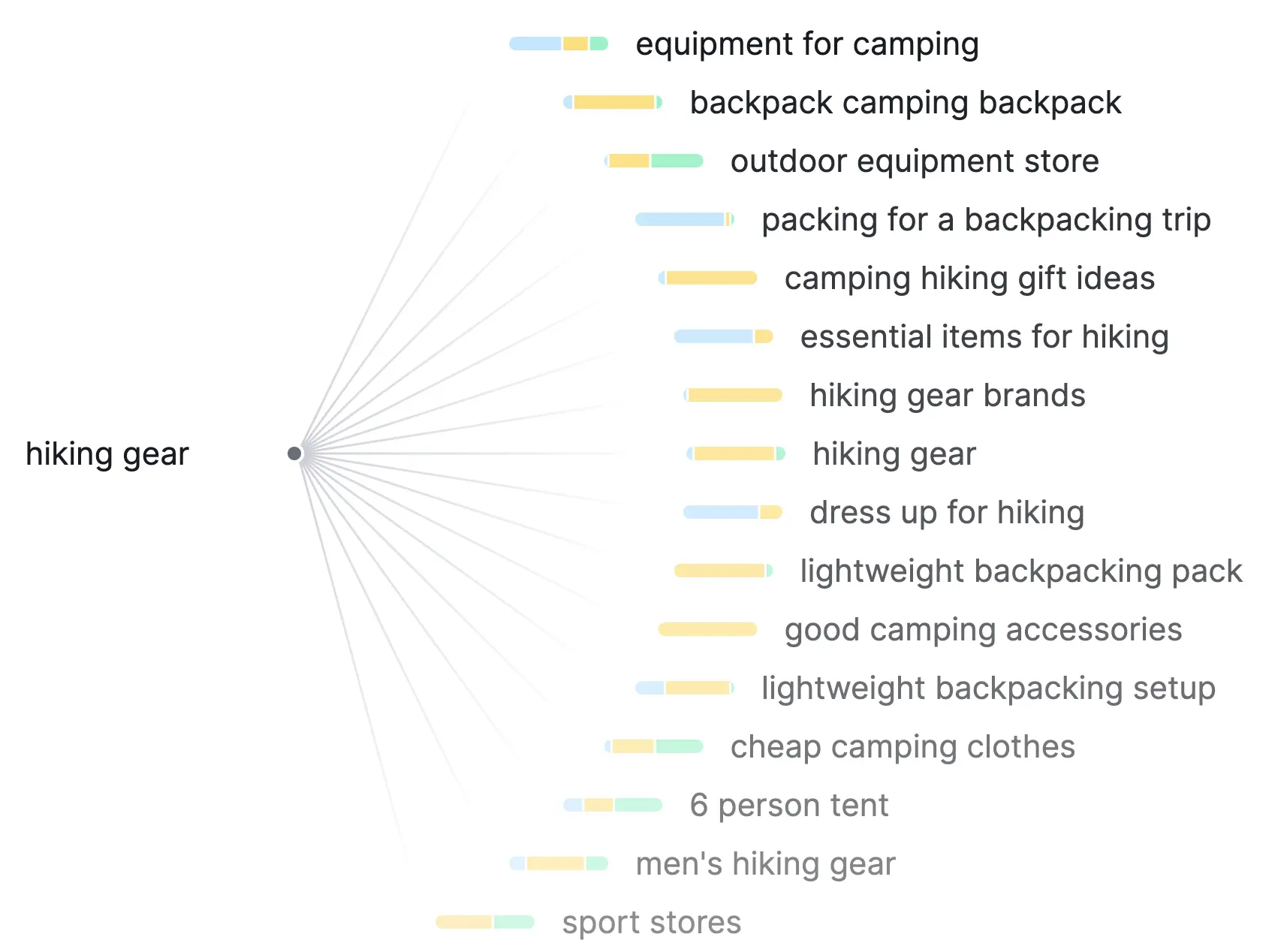
Each cluster contains several keywords with varying keyword difficulty. Depending on your website's size and domain authority, you can choose keywords that are realistic to target.
2. Create a Content Marketing Strategy
Once you identify your keyword clusters, the next step is to create a content strategy. A content strategy will help you develop a plan to transform the outcome of your keyword research into content.
The best strategy is to build topic clusters by following this simple approach:
- Create pillar pages for your main keywords.
- Create cluster pages for your long-tail keywords.
- Interlink these pages together using relevant anchor text.
This is how it looks visually.
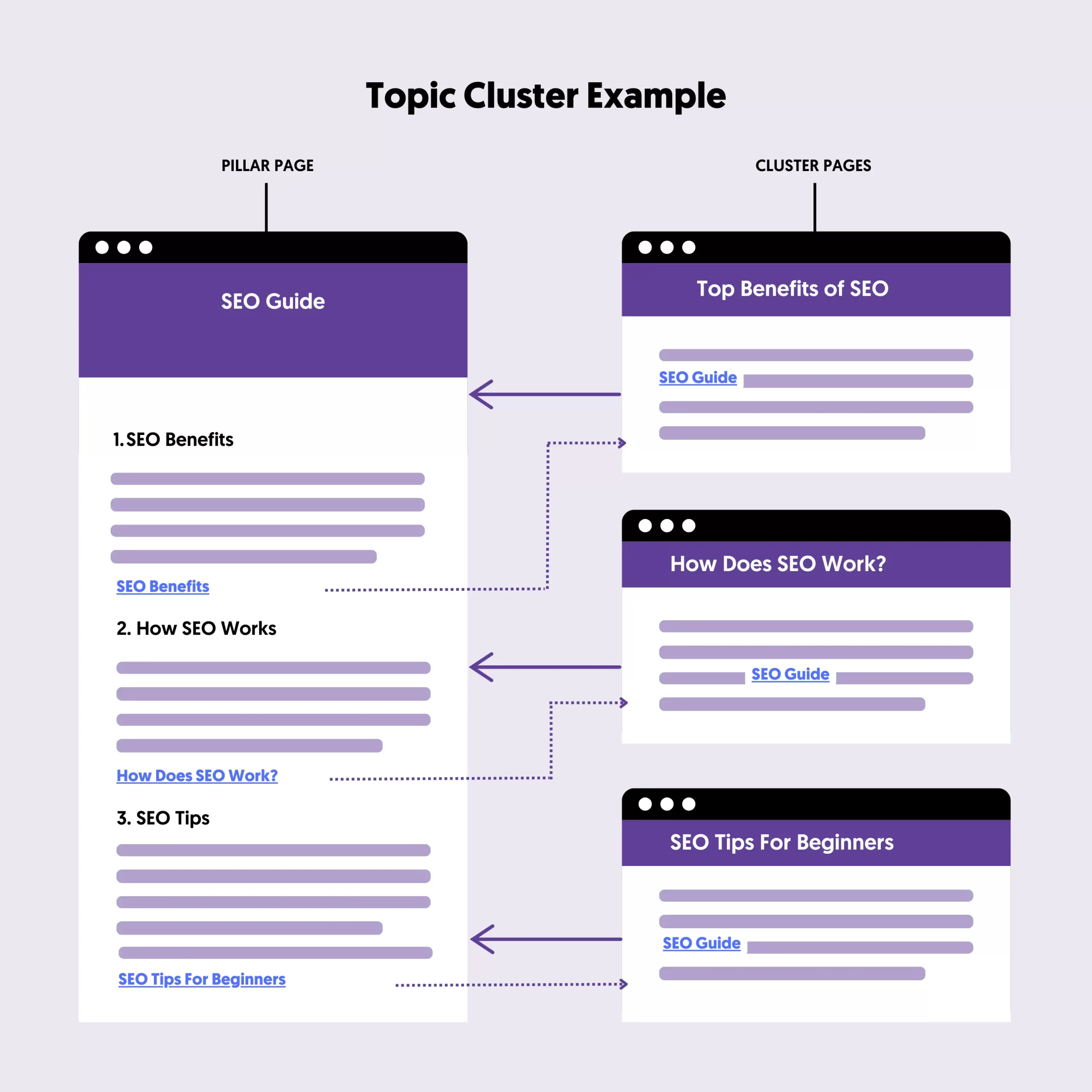
3. Create Highly-Authoritative Content
The next step is creating the actual content for the pillar and cluster pages. This is the most critical part of the process for a simple reason: if your content is not good enough, your strategy will fail.
Mediocre content will not make it to the first page of Google and won't generate sales or conversions, which is the ultimate goal of any marketing strategy. On the contrary, bad content can damage your brand reputation and credibility.
So, what does highly authoritative content mean?
- Content that satisfies the search intent.
- Content that is better than what is already ranking on Google.
- Content generated by human experts on a particular subject.
- Content that demonstrates your brand's experience and expertise in your industry.
Furthermore, highly authoritative content must be presented in a way that is visually appealing and easy to navigate. This means giving attention to your on-page SEO.
Things like using clear headings, subheadings, bullet points, and high-quality custom images to enhance understanding and engagement.
Ensuring your content is mobile-friendly, and loads quickly are valuable signals for SEO purposes.
You can use these tips and guides to learn how to write high-quality content:

4. Build Backlinks With Digital PR Campaigns
I mentioned above that one of the benefits of brand awareness for SEO is the opportunities it can create for link building. However, to appear high in the results and get natural links from other websites, you need to do a lot of work promoting your website using off-page SEO techniques.
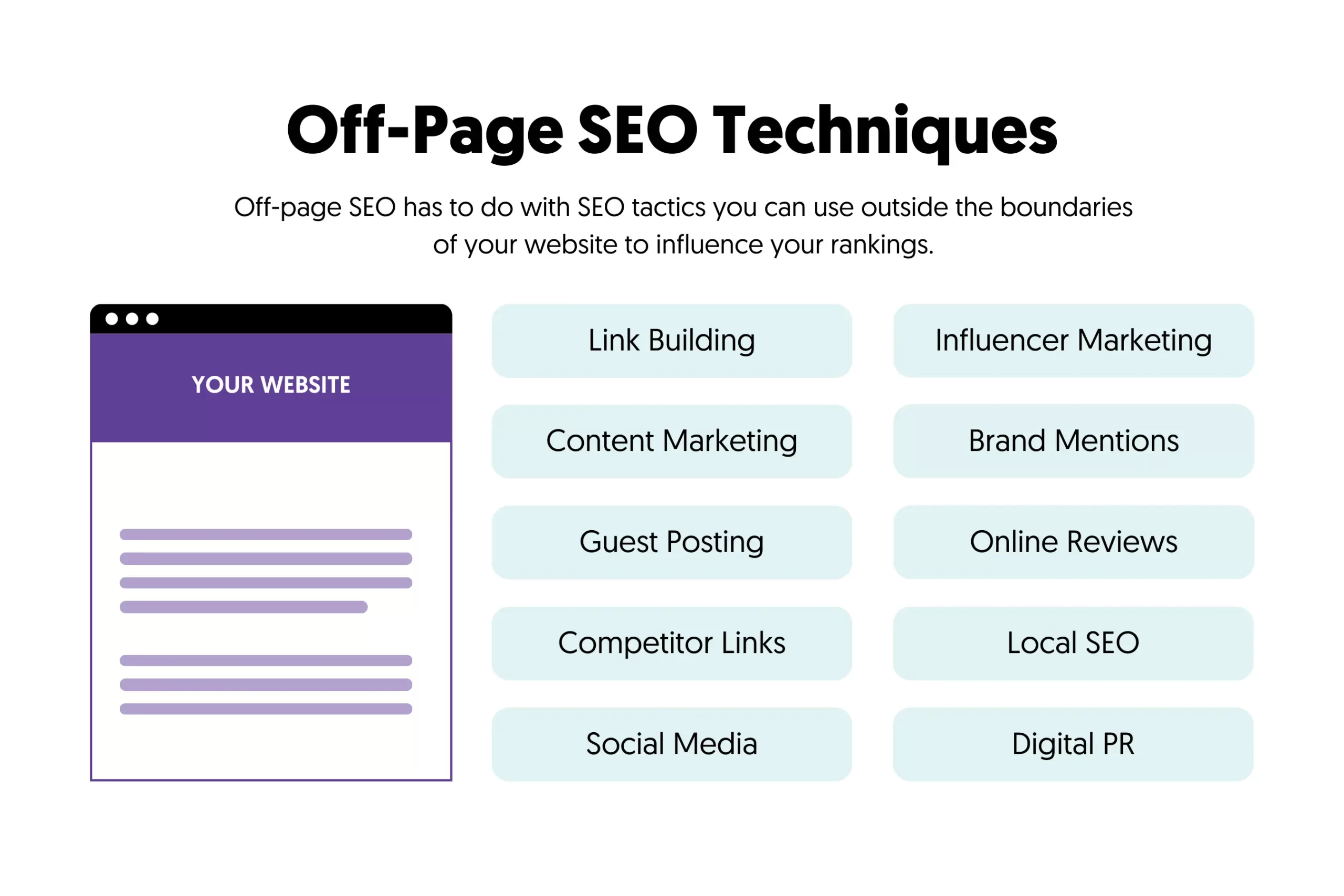
One such way is digital PR. With digital PR, you can get your content in front of the people who are likelier to link to it, mention it in blogs, or share it with their followers.
Digital PR involves strategic publishing and distribution of compelling content that captures the interest of both the media and influencers within your industry. By leveraging relationships with journalists, bloggers, and influencers, digital PR helps you gain high-quality backlinks and mentions across various online platforms.
This visibility boosts your SEO and enhances your brand’s credibility and authority in your industry.
Moreover, the more your content is shared and discussed online, the greater the brand recognition among potential customers.
To maximize the impact of your digital PR efforts, focus on creating content that aligns with current trends and audience interests and ensure it offers genuine value. This could be through original research, expert opinions, or unique solutions to common problems in your industry.
5. Improve User Experience
Once people visit your website, you must provide them with the best possible experience. In the online world, the website is your business's storefront and should accurately represent your brand and products to potential customers.
Having a professional website design is a good starting point, but what is more important is the user experience (UX). In other words, elements to keep users on your website and engage with your content.
The most critical modern usability (UX) factors are:
Core Web Vitals: These are specific factors that Google considers important in a webpage's overall user experience. They include metrics such as Largest Contentful Paint (LCP), which measures loading performance; Interaction to Next Paint (INP), which measures responsiveness; and Cumulative Layout Shift (CLS), which measures visual stability.
Mobile Responsiveness: Ensure your site is easy to use on all devices. Always design your user interfaces and workflows with the mobile user in mind. This means using large fonts, smaller paragraphs, big buttons, and other elements to help users navigate your website on mobile devices without issues.
Navigation and Structure: A simple and logical website structure helps users find information quickly and easily. A good site structure enables users to visit any page on a website in three clicks or less.
Security and Trust: Implementing SSL certificates is critical for securing user data and building trust. Additionally, visibly displaying trust badges (review widgets from third-party websites, awards, business memberships, etc.) and having clear privacy policies can reassure visitors of their safety on your site, which increases their likelihood of engaging with your content and trusting your brand.
For more details on implementing the above techniques, read our best SEO practices guide.
How to Measure Brand Awareness in SEO?
Measuring SEO's impact on brand awareness is challenging because the user's perception of a brand cannot be measured.
Nevertheless, there are some KPIs to monitor to get an idea of how much SEO contributes to brand awareness.
Branded Searches: Track Google searches that include your brand or product name(s). An increase in these searches over time indicates that your brand awareness efforts are paying off. Of course, not all searches can be attributed to SEO, but still, it's a good metric to measure.
To find out how many people search for your brand on Google:
- Go to your Google Search Console account and the Performance on Search Results report.
- Click the NEW button and select Query.
- In the query filter, enter your brand name.
- Pro Tip: If you want a consolidated report with your brand name + product names, use ChatGPT to create a Custom (regex) expression.
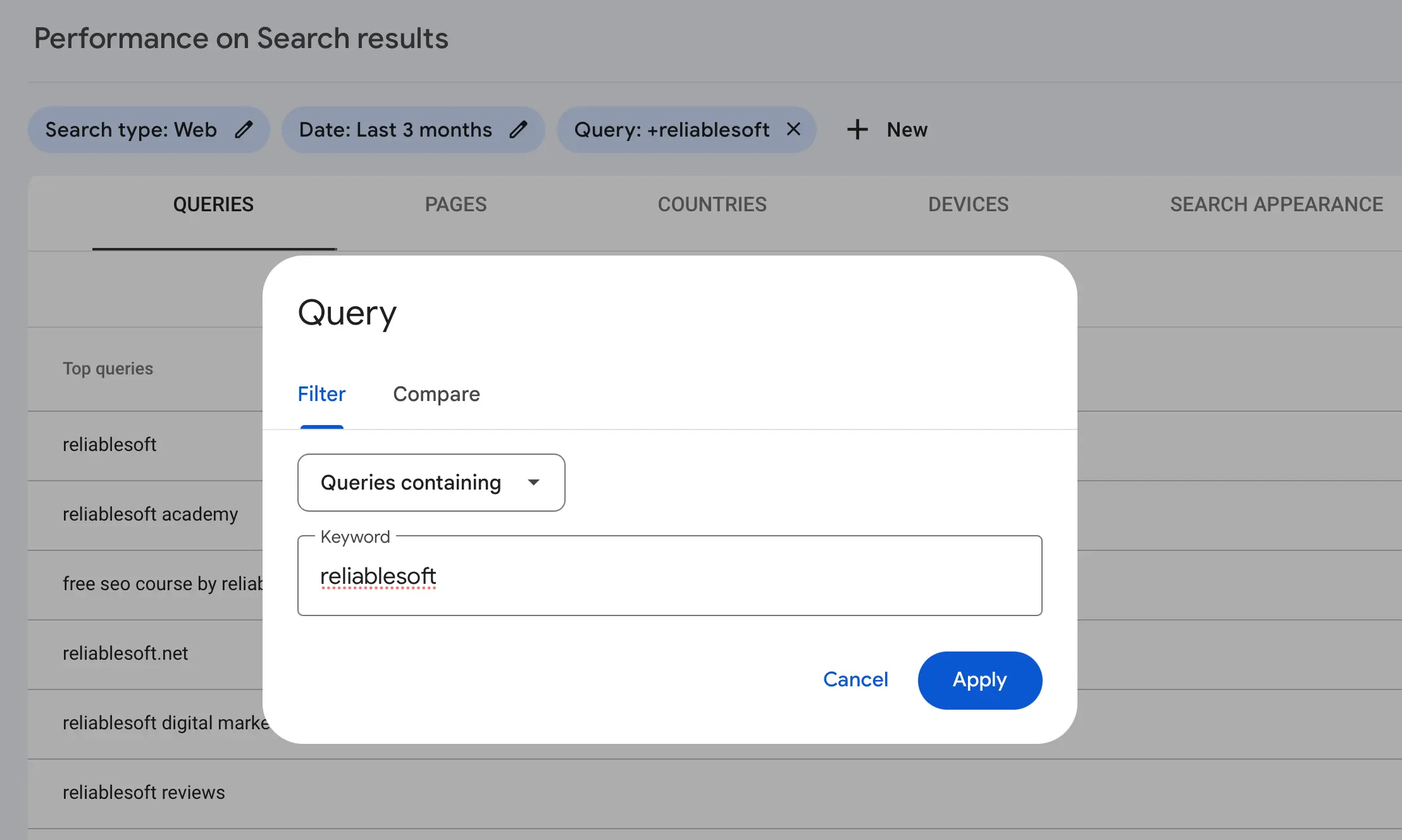
Direct Traffic: Monitor the number of users who come to your site by typing your domain name directly in their address bar. This can be seen as a direct result of brand recall. High levels of direct traffic suggest strong brand recognition and a loyal customer base.
To view your direct traffic, go to Google Analytics and click on the Traffic Acquisition Report (under Acquisition).
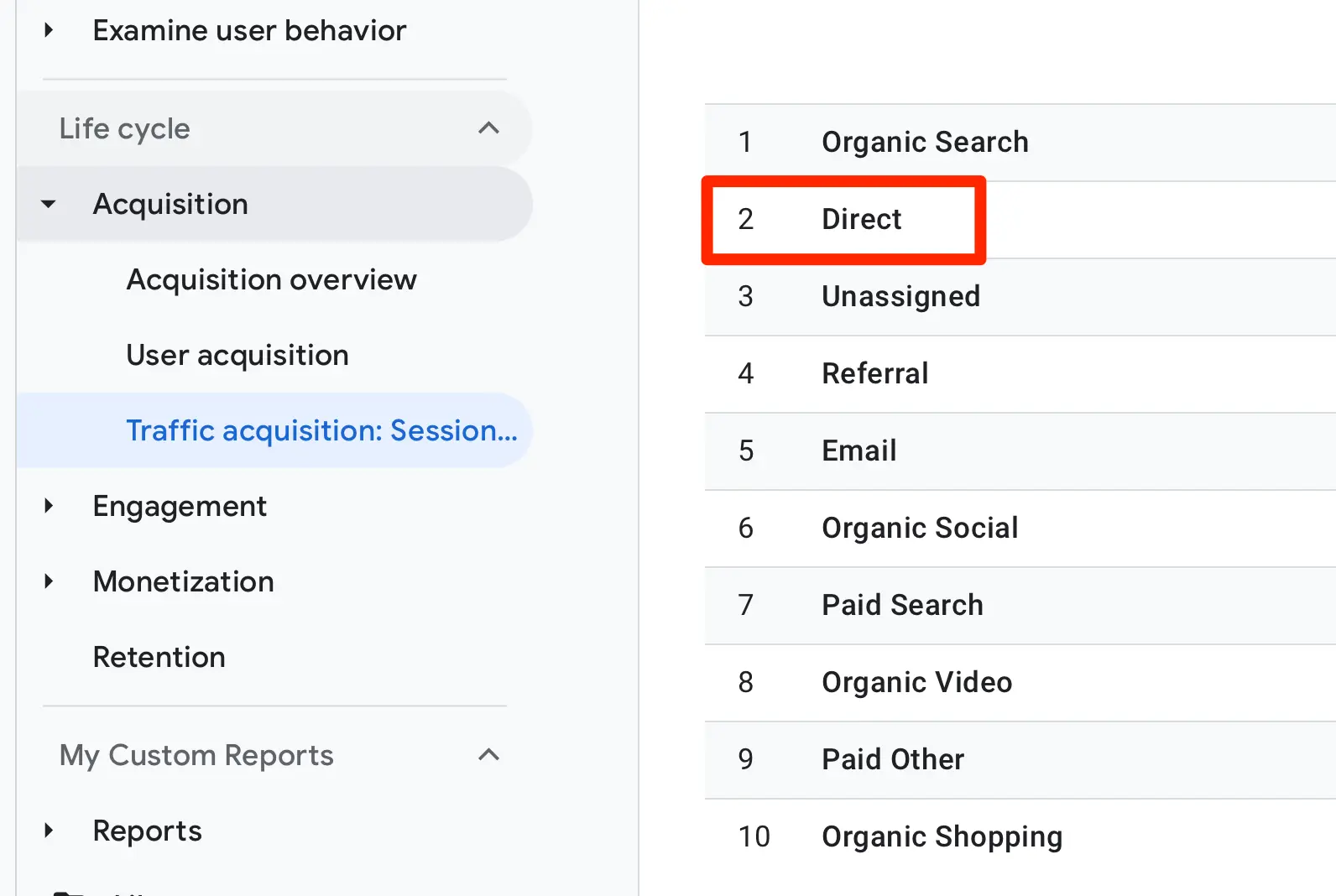
Backlinks: Another metric related to brand awareness is backlinks pointing to your homepage and using your brand name in the anchor text. You may argue that all links are important for your website, and while this is true, we want to monitor brand links only for brand awareness purposes.
You can use any backlink tool to check the anchor text of your incoming links and count the number of branded links.
Unlinked Brand Mentions: As your website grows, you'll notice that the number of domain mentions on different platforms (forums, social media, etc) increases as more people talk about your brand.
This is very encouraging and a sign that what you're doing with marketing is in the right direction.
Monitoring your brand mentions is an opportunity to turn some unlinked mentions into backlinks by contacting the responsible webmasters. It's also a way to respond to bad reviews or opinions before they get more attention.
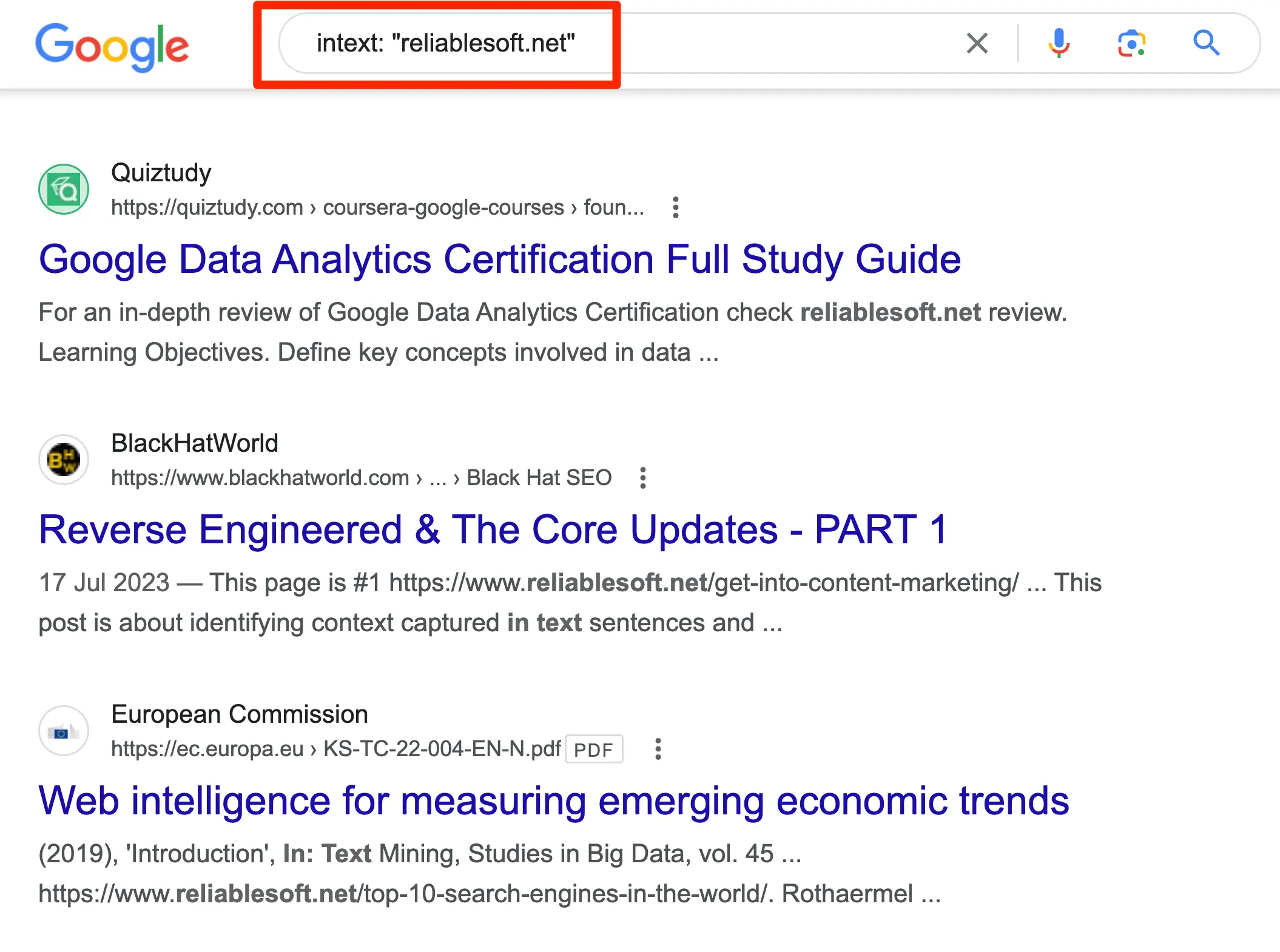
An easy way to check for websites mentioning a brand is to use the "intext:" Google operator, as shown above, or to set up alerts using Google Alerts.
